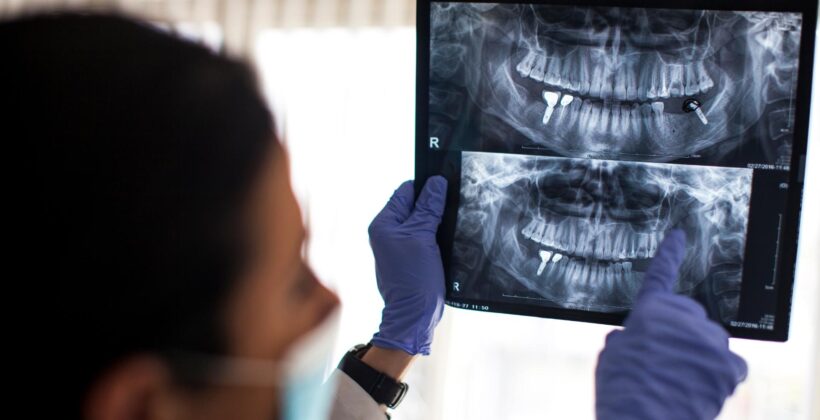
At Midland Bay Dental, we understand dental emergencies can be distressing and often require immediate attention to prevent further complications. Knowing when to visit an emergency dentist can make a significant difference in preserving your oral health and alleviating pain.
Not everyone is a dentist, however. In this blog, we’ll discuss the signs and symptoms of a dental emergency, helping you make informed decisions in urgent situations.
What Is a Dental Emergency?
Dental emergencies encompass a variety of issues that need immediate attention to prevent severe consequences. These can range from sudden toothaches to traumatic injuries. Here are some common scenarios that would require a trip to an emergency dentist:
Severe Toothache
A severe, persistent toothache can indicate an underlying problem such as an infection, abscess, or advanced decay. If the pain is unbearable and doesn’t subside with over-the-counter painkillers, it’s crucial to seek emergency dental care. Ignoring a toothache can lead to more serious infections that might spread to other parts of your body.
Knocked-Out Tooth
A knocked-out tooth is one of the most time-sensitive dental emergencies. If you act quickly, there’s a chance to save the tooth. Here’s what to do:
- Handle the tooth by the crown (the part that’s visible in the mouth) and avoid touching the root.
- Rinse the tooth gently with water if it’s dirty, but don’t scrub it.
- Try to reinsert the tooth into its socket if possible. If that’s not feasible, place the tooth in a container of milk or a saline solution.
- Contact your emergency dentist immediately. The best chance of saving the tooth is within the first hour after the injury.
Cracked or Broken Tooth
Cracking or breaking a tooth can be quite painful and may lead to further damage if not treated quickly. A minor crack might not be an emergency, but a significant break or a tooth with sharp fragments can cause severe discomfort and risk of infection. Seeing a dentist as soon as possible is essential to assess the damage and prevent complications.
Abscessed Tooth
An abscessed tooth is a serious condition characterized by a pocket of pus caused by a bacterial infection. Symptoms include severe pain, swelling, fever, a bad taste in the mouth, and swollen glands. If not treated immediately, this condition can lead to serious, even life-threatening, complications. Emergency dental care is vital to drain the abscess and treat the infection.
Lost Filling or Crown
While losing a filling or crown may not always cause immediate pain, it exposes the vulnerable part of your tooth to bacteria and further damage. Replacing the filling or crown as soon as possible is essential to prevent decay and restore the tooth’s integrity. If you lose a filling or crown, keep it safe and contact your dentist promptly for an emergency appointment.
Soft Tissue Injuries
Injuries to the gums, tongue, cheeks, or lips can result in significant bleeding and discomfort. Rinse your mouth with warm water and apply a cold compress to reduce swelling. If the bleeding doesn’t stop after 15 minutes of applying pressure, seek immediate dental or medical assistance.
When to Visit the ER
Sometimes, you might be unsure whether to go to the emergency room (ER) or visit your dentist. Generally, you should go to the ER if you experience:
- Uncontrollable bleeding
- Severe swelling that affects breathing or swallowing
- Trauma to the face or jaw that might include broken bones
For most other dental emergencies, your dentist is the best person to provide the appropriate care. Dentists are equipped to handle dental-specific issues and can offer immediate relief and long-term solutions.
Preventing Dental Emergencies
While not all dental emergencies can be avoided, taking certain precautions can reduce your risk:
- Maintain good oral hygiene by brushing and flossing daily.
- Visit your dentist regularly for checkups and cleanings.
- Wear a mouthguard during sports activities to prevent injuries.
- Avoid chewing hard foods, ice, or non-food items that can crack your teeth.
- Address dental issues promptly to prevent them from becoming emergencies.
Midland Bay Dental: Your Destination for Dental Crowns and Bridges
Understanding when to call an emergency dentist can save you from unnecessary pain and protect your oral health. You can ensure quick and effective treatment by recognizing the signs of a dental emergency and knowing the appropriate steps to take.
If you need emergency dental care, don’t hesitate to contact us. At Midland Bay Dental, we’ve been providing emergency dentistry services in the Midland, Ontario, area since 1974. We have helped countless patients achieve the smiles of their dreams.
We pride ourselves on providing expert family dentistry. We offer services such as dental crowns and bridges, regular cleaning and checkups, and more intensive procedures like tooth replacement, teeth bonding/veneers, and teeth whitening.
Contact Midland Bay Dental to book an appointment online or call us at (705) 526-6441.
Follow Midland Bay Dental on Facebook.

Leave a Reply